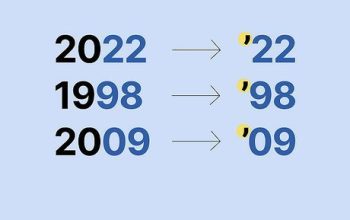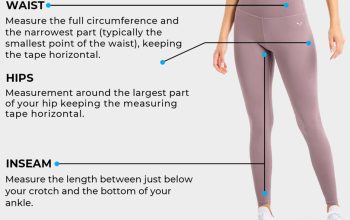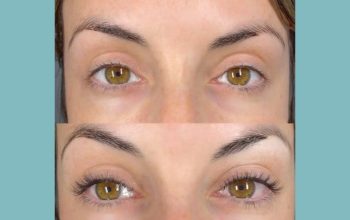A blinker lasts for just a fraction of a second. Have you ever wondered how long is a blinker? It’s a question we often take for granted, yet the answer holds fascinating insights into our daily interactions. In this article, we delve deep into the science behind this seemingly simple action. Join us as we explore the mysteries behind the blink of an eye and uncover the secrets within this fleeting moment. Let’s journey together into the world of blinks and discover the hidden dimensions of our visual perception.
How Long is a Blinker: Exploring the Fascinating World of Blinking
Welcome, curious minds, to an exploration of one of the most fundamental actions of the human body – blinking. Have you ever wondered how long each blink lasts? Join us on this journey to uncover the mysteries behind the blink of an eye!
The Blinking Process: A Quick Overview
Before we dive into the specifics of how long a blink lasts, let’s understand how the blinking process works. Blinking is a natural and involuntary action that helps keep our eyes moist and free from debris. It also helps protect our eyes from bright lights and unexpected objects.
On average, a person blinks around 15-20 times per minute. However, the duration of each blink is incredibly brief, lasting only a fraction of a second. But just how long is a blink exactly? Let’s find out!
Measuring the Duration of a Blink
Believe it or not, scientists have actually studied the duration of a blink to better understand this seemingly simple action. Research has shown that the average duration of a blink is approximately 100-150 milliseconds. That’s less than a quarter of a second!
During a blink, the eyelids move quickly and smoothly over the surface of the eye, spreading tears to keep the eye moist and clear. This quick motion helps protect the delicate cornea and conjunctiva from potential damage.
Factors Affecting Blink Duration
While the average blink duration falls within the range of 100-150 milliseconds, there are several factors that can influence how long a blink lasts. One of the main factors is the individual’s level of concentration or focus.
When someone is deeply focused on a task or activity, they may blink less frequently and for shorter durations. This is why you might notice that you blink more often when you’re feeling relaxed or not actively engaged in something.
Other factors that can affect blink duration include environmental factors such as air quality, humidity levels, and the presence of irritants in the air. Additionally, certain medical conditions like dry eye syndrome can also impact how long a blink lasts.
The Importance of Blinking
While the duration of a blink may seem insignificant, blinking plays a crucial role in maintaining the health and function of our eyes. Each blink helps distribute tears across the surface of the eye, providing essential lubrication and moisture.
Furthermore, blinking helps protect the eyes from potential harm by reducing exposure to bright lights, dust, and other particles. Without the natural reflex of blinking, our eyes would be more vulnerable to irritation and infection.
Tips for Keeping Your Eyes Healthy
Now that we’ve delved into the world of blinking, let’s explore some practical tips for maintaining healthy eyes:
1. Take Regular Breaks
If you spend long hours staring at a screen, remember to take frequent breaks to rest your eyes. Follow the 20-20-20 rule – every 20 minutes, look at something 20 feet away for at least 20 seconds.
2. Stay Hydrated
Drink plenty of water to stay hydrated, as this can help prevent dry eyes and maintain good tear production.
3. Use Proper Lighting
Avoid harsh lighting that can strain your eyes. Opt for softer, natural light when possible, and adjust the brightness of your screens to reduce eye fatigue.
4. Visit an Eye Care Professional
Regular eye exams are essential for maintaining good eye health. Make sure to schedule routine check-ups with an eye care professional to monitor your eye health and address any concerns.
So, the next time you find yourself blinking, remember that each blink is a quick and vital process that keeps your eyes healthy and functioning optimally. While the duration of a blink may be short, its impact on eye health is significant. Take care of your eyes, blink regularly, and enjoy the world through clear and bright eyes!
We hope this exploration into the duration of a blink has enlightened you and inspired you to appreciate the wonders of the human body. Until next time, keep blinking and stay curious!
how to take a blinker
Frequently Asked Questions
How long does a blink typically last?
A blink usually lasts about 100 to 150 milliseconds, which is less than a second. It is a quick and automatic movement of closing and opening the eyelids.
What is the purpose of blinking?
Blinking helps to keep the eyes moist, protect them from debris, and distribute tear film evenly. It also helps improve visual clarity by resetting the focus of the eyes.
Can the duration of a blink vary from person to person?
Yes, the duration of a blink can vary slightly from person to person. Factors such as age, eye health, and environmental conditions may influence the speed of blinking.
Final Thoughts
Blinking is a natural process that occurs multiple times a minute. Research shows that a blink typically lasts around 100-150 milliseconds. This quick action is essential to keep the eyes moist and protect them from debris. So, just how long is a blinker? Approximately a tenth of a second. Next time you blink, remember how quickly your body works to keep your eyes healthy.




